Opeth’s 2011 album, Heritage, marked a drastic stylistic shift by Sweden’s premier progressive-metal band. Within the timespan of a single album cycle, they turned their backs on death-metal-style vocals, high-gain amplification, and blast beats. Opeth focused, instead, on vintage guitar tones, layered clean vocal melodies, and compositions that have more in common with Yes than Dimmu Borgir.
The shift was jarring for fans who embraced the band’s previous black-metal sound, but it opened Opeth’s sonic journey in progressive rock that continues to this day. On their new In Cauda Venenum, Opeth doubles down on their exploratory compositions. While there is plenty of familiar territory for fans to sink their teeth into, unexpected twists like the Broadway-approved middle section of “Universal Truth” and the jazzy swing of “The Garroter” are likely to expand a few listeners’ horizons.
And, according to frontman and guitarist Mikael Åkerfeldt, fans should get onboard with this ever-expanding songwriting, or move on. “Many of the songs are really big, pompous, and epic, which I always liked,“ he says. “Basically, [this music] is what I want to do. If 100 percent of our fans hate this record, well, I’m sorry. But I love it.”
Not only does Åkerfeldt not care what the public thinks of In Cauda Venenum, he even kept his own band (lead guitarist Fredrik Åkesson, bassist Martín Méndez, drummer Martin Axenrot, and keyboardist Joakim Svalberg) at arm’s length throughout the songwriting process.
Åkerfeldt is clearly intentional about his music. From his iron-fist control of the material all the way to the gear used in the studio, every decision is made quickly, decisively, and with a hyper focus on the details. Yet even with so much of his energy currently focused on his art, Åkerfeldt took the time to talk with Premier Guitar about it all—from In Cauda Venenum’s vast orchestrations to the straightforward death metal of his previous band, Bloodbath. Everything was on the table, and he didn’t hold back. (Sorry Yngwie!)
Evolution is a big part of Opeth. Has that been a conscious direction from the beginning?
I don’t like repeating ourselves. If I find that I haven’t moved on from the last album, I usually hit the delete button and start over. But the most important thing is that it’s good. It doesn’t have to be completely different than the record before. If it’s superb, I'll keep it in. But I want to move forward, much to the frustration of some fans.
How did you move forward on In Cauda Venenum?
This time, I was very selfish and I’m only thinking about myself and what I wanted to present. There were no other contributions from the other guys in the band. I wanted it to be as close to my personal taste as possible. This is how I want to present Opeth in 2019 and 2020. My goal, I guess, is to become more selfish [laughs]. And I think I achieved the goal.
As I was writing, and as the songs were shaping up, my other goal with this record became to make the most emotional record of them all. I wanted to make a record that was tugging on the heartstrings more than the previous ones.
Take me through your songwriting process.
Once I start writing for a record, I work every day, and I don’t get too stressed out if I don’t come up with anything one day. I move forward quickly. I make decisions very, very quickly. Those decisions can mean that I delete stuff because I don’t want to keep shit. If it’s not good enough, it’s gone, and it’s gone forever. I can never go back and see what I did.
I’m sorry. But I love it.”
I write when I need to write, more or less. This record was a little bit of a different situation because I was going on a sabbatical. I thought, after the last tour, that I was going to take a break from it all and not be the Opeth guy. Just be me. But I got restless. Three, four weeks into that sabbatical, I was in the studio working. The good thing about that was nobody knew I was there. The management, the record labels, and the band didn’t know. I didn’t let them know until I had three or four songs. I wrote it under a minimum amount of stress or no stress at all. It was joyous. I had a great time to the point where I couldn’t stop writing almost. We ended up with the longest album we ever put out, and three bonus tracks.
The album sounds terrific. Each instrument is very distinct, yet they work together as one. Was that a goal when you were tracking?
We were in Park Studios [in Stockholm] and worked with [engineer] Stefan Boman [Def Leppard, the Hellacopters], who is the same age as me. He’s like me. He’s a vintage buff. I don’t like to fake it in the studio. It was a pretty old-school setup with the exception that we didn’t record onto tape. Everything else is a good old microphone in front of a good instrument, speaker, or acoustic guitar. It’s important to us.
We had a nice Hammond B-3 organ. We had a nice original M400 Mellotron, lots of old guitars, lots of amplifiers, and pedals. We even recorded all the effects on the guitars. They’re not added afterwards. That basically ties in with my fascination to make fast decisions. We get a good sound, that’s it. That’s what we’re going to record and then we can’t change it. I like that.
Even at your heaviest, Opeth’s music always maintains a human, rock ’n’ roll feel. Do you guys track live?
We didn’t track live. We’ve done that before, but then my attention seems to be directed in one way. It’s really hard for me to keep control of what two guys are doing. If I focus on the drums, then I can miss something on the bass. I didn’t want to do that this time, because the music was much more complex. So we did this [album] one instrument at a time.
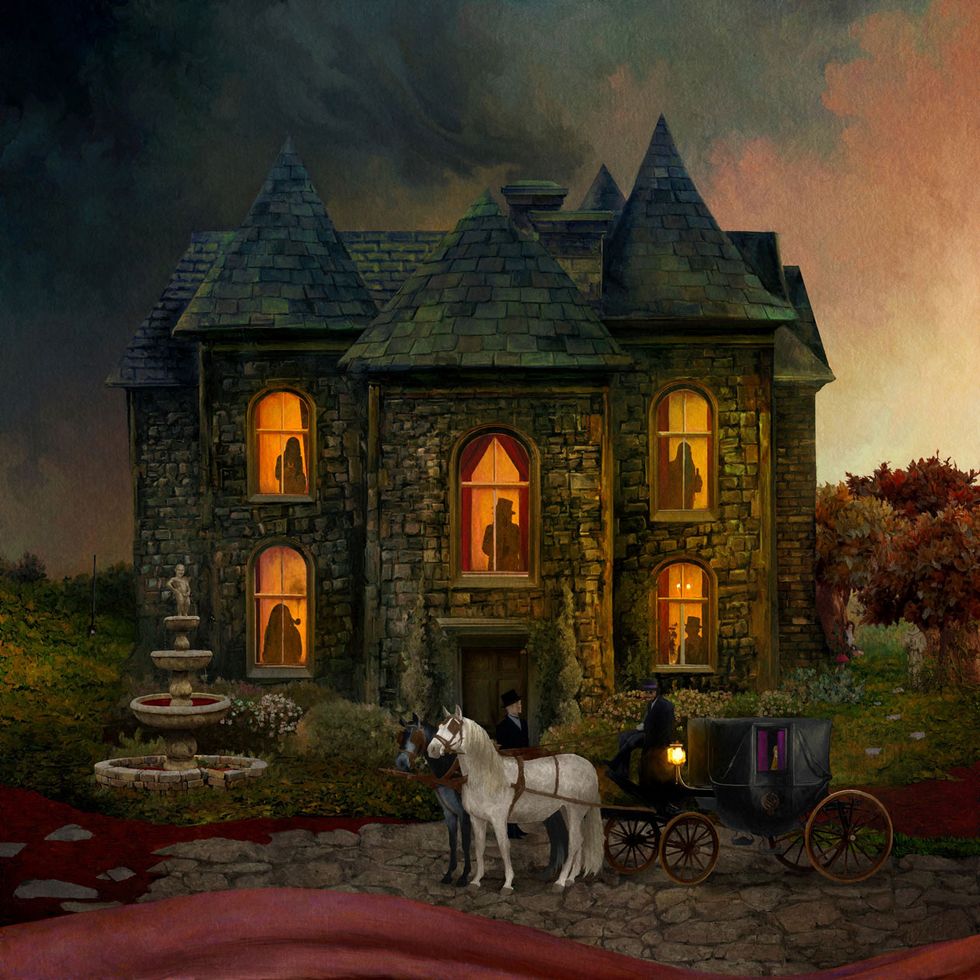
TIDBIT: Mikael Åkerfeldt wrote the songs for Opeth’s 13th studio album in secret. “The management, the record labels, and the band didn’t know,” he says. “I wrote it under a minimum amount of stress or no stress at all. It was joyous. I had a great time to the point where I couldn’t stop writing almost.”
The guitar tones have an incredible vintage flavor throughout the album. What did you use to get that vibe?
One thing that’s been important for me since [2008’s] Watershed, I would say, is to try and get away from the generic metal tone that’s so popular today. I wanted to hear the human behind the instrument. So for guitars, there was everything from a bunch of Stratocasters to a mid-’60s SG with P-90s. There was also a Les Paul Junior on there with a P-90, and a Jaguar. We played the Jaguar a lot, actually. There’s a Flying V on the first song, “Dignity.” Some PRS models, too. I think a Tremonti was on there and one other guitar I can’t remember. Acoustically, I only used a Martin 000-28, which is my favorite-sounding guitar that I have. It’s not too bassy, not too trebly. It’s perfect for recording.
Amp-wise, we had a Friedman. I can’t remember which model. We had a Swedish amp—an Olsson, which is basically the one that we used for most of the record. We also had a plexi, but I can’t remember if it was used. Then there were a bunch of vintage and new stompboxes.
I’m a sucker for spring reverb, so we used a nice spring reverb that was actually made from a box in the studio. We put that on pretty much everything. I loved it. And analog delay or tape echo. We have it all on there.
I love how you allow your acoustic guitars to breathe. I’m guessing that goes back to your love of ’70s-style production.
I’m very peculiar with my acoustic sound. I know what I want. And it’s got a lot to do with how you sit in front of the microphone. You can change the sound of the guitar if you just turn a little bit. But generally, we put a nice Neumann at the 12th fret. That was it.
Frontman Mikael Åkerfeldt wields one of the PRS models he plays in concert. He also has a signature PRS, with an extra-thick, single-cut mahogany body, a maple top with a flame-maple veneer, HFS and Vintage bass humbuckers, and, of course, Opeth’s logo on the body. Photo by Tim Bugbee/Tinnitus Photography
You said you were into recording guitars with effects. Those effects really stand out in places like the psychedelic delay manipulation on “Heart in Hand” and the fuzz on “All Things Will Pass.” Were there any pedals that became the go-tos?
The studio had shitloads of pedals, and we also have shitloads of pedals. I can’t remember what they’re called, though. Generally, we added a little boost from a fuzz pedal on the guitar. And we used a distortion pedal on the bass that alternated between two settings. It added more of a midrange to the bass guitar, which I always liked. Then the spring reverb … like I said, that was an old fucking metal box that he had in the studio. The echo was probably like a Carbon Copy, or something.
Are any of those pedals going to make it into your live rig?
Yes. We both [Åkerfeldt and Åkesson] switched to Synergy amps. I was really happily surprised with them. I didn’t figure it was going to work out for us. But it really, really did. I’m going to add a phaser [an Electro-Harmonix Small Stone] to that rig. The spring reverb, when we play live, I take it from the Axe-Fx.Fredrik has a shitload of stompboxes onstage. He constantly changes them. He’s got, I don’t know, fucking 15 or 20 pedals on the board.
What Synergy preamp modules do you use?
Soldano, for the heavy tone. That sounds like a high-end fucking L.A. cock-rock brand to me [laughs]. I never tried a Soldano amp in my life, but it sounded really nice, and there’s a Friedman for what I call “old man’s rock.” It’s like when you roll back on the distortion and get that softer, just slightly distorted sound. It’s for softer leads.
Tell me about the dynamic between you and Fredrik Åkesson. Who plays what, and how do your styles complement each other?
Fredrik is a lead guitar player. He’s basically a shredder. That’s what he is. That’s his forté. And I’m not. I’m the slow hand of hard rock. I like to play slow melodies. Fredrik loves when I tell him, “Okay, I need a fast run here. Can you do it?” But he also has this side that I’m trying to bring forth. It’s his emotional playing.
On a song like “Lovelorn Crime,” that solo, to me … that’s his masterpiece. It’s the best solo he’s ever done, as far as I’m concerned. It’s insane how good he is. He is one of the best guitar players in metal music.Together we make a very good team, because I’m a fairly good acoustic player and I’m a pretty good rhythm player. I also have taste. With that combination and the tools I have with Fredrik, we cover a lot of ground.
Does Fredrik also play rhythms on the album?
We play one [stereo] channel each. But when it comes to acoustic, I play pretty much all of them. Then Fredrik does pretty much all of the solos. I think I do one or two. I do one in the song “Next of Kin.” And I do the scat solo in “The Garroter,” the jazzy song.
I think your playing has an incredible vocal quality that probably has a lot to do with the fact that you’re a singer. Were there any ways you were able to stretch out and grow as a guitarist on this album?
That would be my acoustic playing, I think. There’s one part that I’m proud of, and that’s in “Next of Kin.” There’s an acoustic interlude which I’m really happy with. It sounds a bit folky. I’m also quite happy with my lute part on “The Garroter.” It’s a little bit of a faster thing, which sounds maybe ridiculous to some people. But I think I pulled it off okay.
The guitar is such a vital ingredient in the Opeth sound. How do you see its role in the band?
It’s the same as all the other instruments. Even if I’m a guitar player, I don’t favorize the guitar more than any of the other instruments. Fredrik would love for me to favorize it a bit more, I’m sure. But I don’t think in terms of us as a guitar band. We’re a band of a bunch of different instruments, and all of them have equal importance to me.
That said, you’re very open about your guitar heroes—especially Ritchie Blackmore. But who inspires your playing today?
It’s the same guys from back in the day. There’s some newer players that I think are really good, but many sound the same to me. It goes with metal music in general. I think it’s very samey. Some of those players are fucking great. I just can’t hear that it’s them. It’s not like Gilmour. You instantly hear it’s him. Ritchie Blackmore, you hear it’s him. Jimmy Page, Michael Schenker, Uli Roth … you hear it’s them.

Guitars
PRS Mark Tremonti Signature
PRS Mikael Åkerfeldt SE Signature
Fender Stratocasters
Gibson Les Paul Junior
Gibson SG Special
Gibson Flying V
Fender Jaguar
Martin 000-28
Amps
Synergy SYN50
Synergy Soldano SLO preamp module
Synergy Friedman preamp module
Olsson head
Synergy 4x12 with Celestion Vintage 30s and Greenbacks
Effects
Fractal Axe-Fx II
Electro-Harmonix Small Stone
MXR Carbon Copy
Xotic EP Booster
Custom rackmount spring reverb
Strings and Picks
Thomastik-Infeld Power-Brights (.010–.045)
Dunlop nylon, 1 mm
Even if I love his guitar playing … like Joe Bonamassa. I’m not sure how he sounds. I think he’s a product of his influences. So I wouldn’t be able to pick him out of a hundred players. He’s just fucking skilled and has a great tone, great emotion, and all that stuff. He’s also got his influences on his sleeve. He can emulate his idols to the point where he plays their stuff much better than they can. But what does Joe Bonamassa sound like? I wouldn’t know.
Then the acoustic players that I really like…. I discovered Tommy Emmanuel maybe 10 years ago. He’s fucking fantastic. When you hear him play, it’s like, “Wow, I wish I could play like that.” I also love Bert Jansch and Nick Drake. Joni Mitchell is very underrated. Then there’s rhythm players, like James Hetfield, Malcolm Young, Dave Mustaine, and those guys.
And I still love Yngwie! He’s got his sound and you can hear it right away. Unfortunately, you’re going to hear he wrote the song, too. If he’s reading this, I’m sorry. I love him. I have the utmost respect for him, but he could up his game a lot.
Heritage marked one of Opeth’s biggest changes, as you turned away from a heavier, more extreme sound. But there’s still plenty of metal throughout every album. Do you think that, because people have reacted to the lack of the extreme influence, many have missed the metal elements that are still present?
Yes. I think I have a different view on what metal is. We’ve been part of tours where we’re playing with 15 fucking bands that sound the same. They’re aggressive and they all have neck tattoos. I couldn’t take it anymore. And we’re lumped in with that shit. I just didn’t want to be there anymore. I couldn’t see the comparison between us and our peers in that scene.
To a lot of people, metal has to be screaming vocals, double bass drums that are triggered and really high in the mix, and a Mesa/Boogie’s super-distorted sound. But that’s not wild enough for me. For me, metal is supposed to be a bit wild.
In a recent interview with Premier Guitar, Devin Townsend discussed how he embraces his metal side as a color to add to his symphonic and acoustic shades. And I noticed some death growls in the background of your songs, like “Next of Kin.” Do you think similarly about your metal influences?
I do whatever the song needs. If it had needed proper death metal, it would be on there. That’s as far as I go. I don’t do anything to hint to the fans, like, “Hey, I can still do it,” or “I still love it.” When we play those older songs live, we fucking enjoy playing those songs. It’s fun. Maybe, it’s more fun now than ever. But on record, I don’t really see the need for those type of vocals. I try to develop my real voice, trying to use that as aggressively as I can. I think, more on this record than on the previous ones, I’m pushing my vocal thing out of my comfort zone.
I’m not hating on death metal, and especially not hating on the death metal that we did before. But for us to return to that vocal style, I think it’s more likely that we do a proper death-metal record in the style of Death, Morbid Angel, or Autopsy. I never really liked the progressive death metal, apart from the stuff that we did. My death metal is the pure, simplistic, stupid fucking death metal. That’s the stuff I like. [Chuckles.]
I’ve done that with [Swedish death-metal supergroup] Bloodbath. That was, basically, the type of death metal that I like, pure death metal. If I would do that with Opeth, we would be competing with my old band. I’m not sure if that’s going to happen. But if we would do a thing like that, it would probably be more in the vein of pure death metal.
Opeth performs “Sorceress,” from 2018’s Garden of the Titans: Live at Red Rocks Amphitheatre, displaying their marriage of metal and muscular, melodic songwriting with a prog edge. Check out the gorgeous guitar-and-keyboards unison section at 5:11.




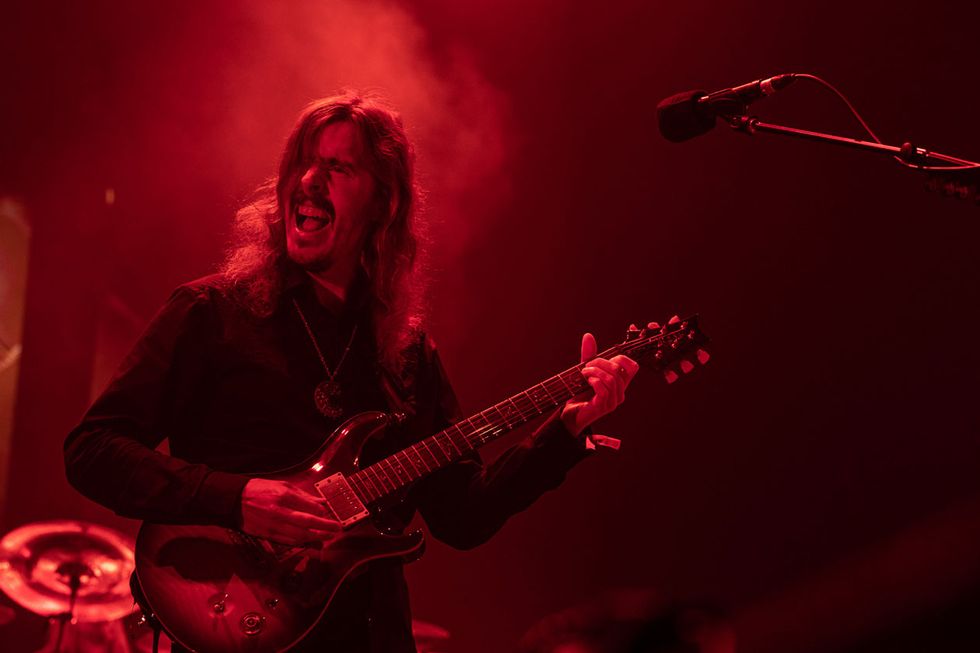






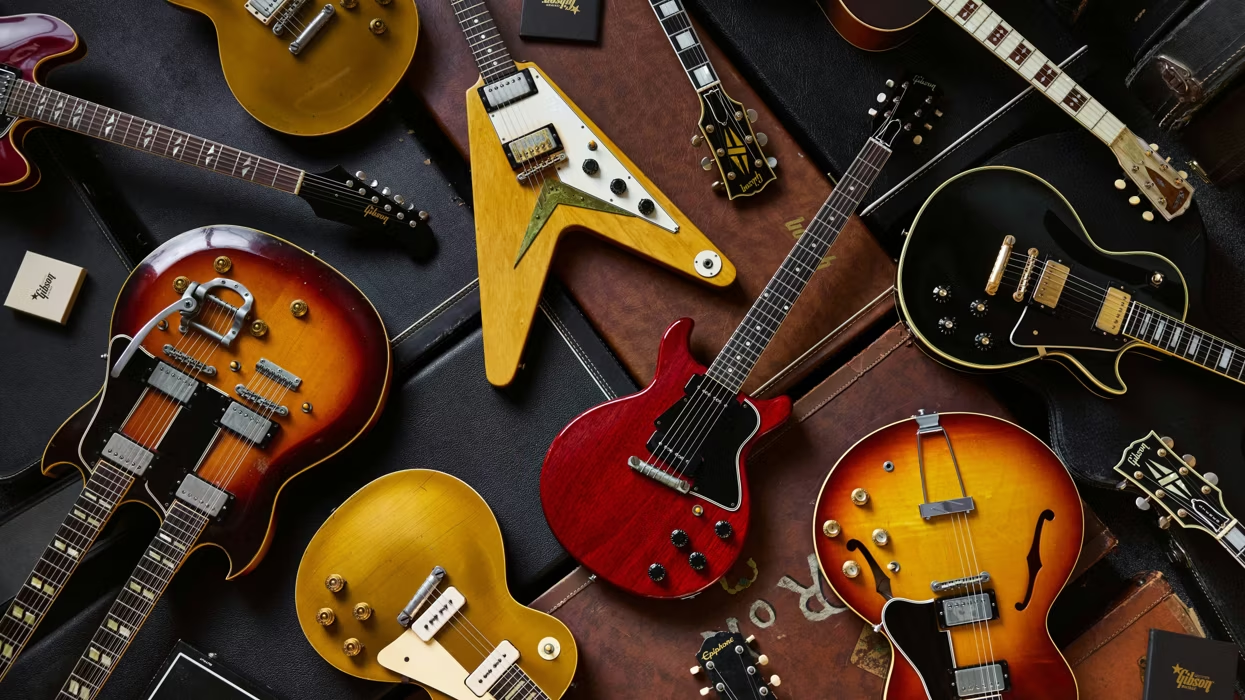
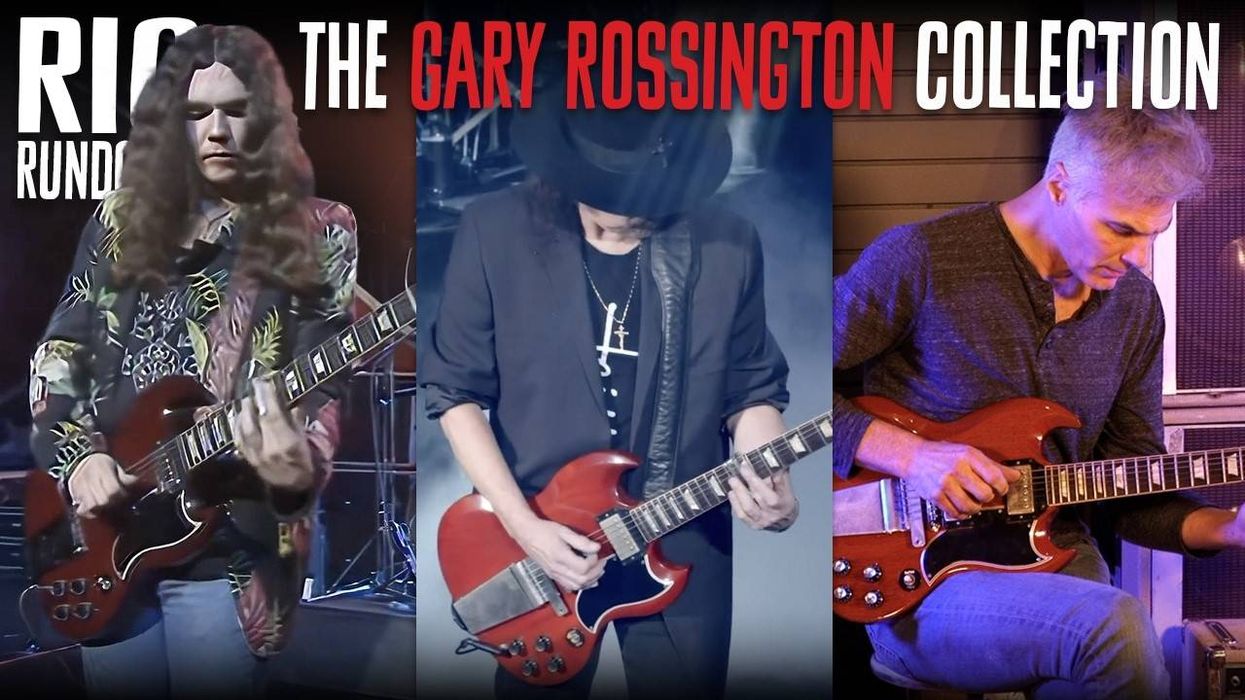
![Rig Rundown: Russian Circles’ Mike Sullivan [2025]](https://www.premierguitar.com/media-library/youtube.jpg?id=62303631&width=1245&height=700&quality=70&coordinates=0%2C0%2C0%2C0)

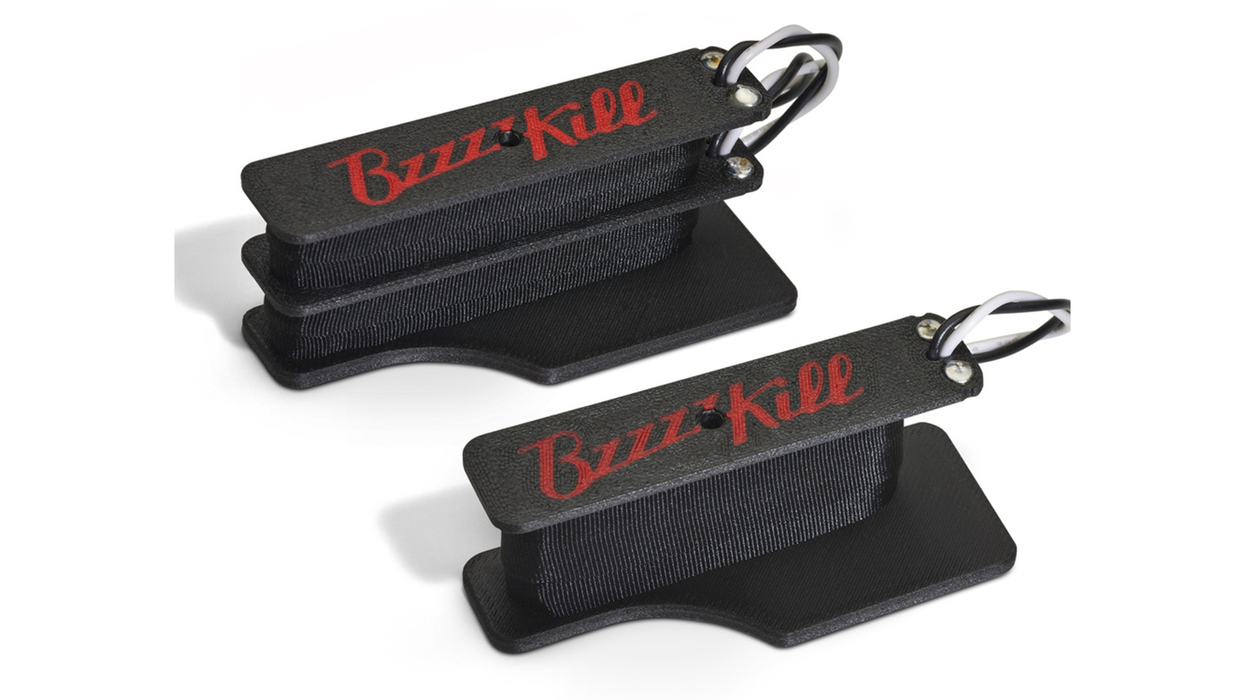










![Rig Rundown: AFI [2025]](https://www.premierguitar.com/media-library/youtube.jpg?id=62064741&width=1245&height=700&quality=70&coordinates=0%2C0%2C0%2C0)




















 Zach loves his Sovtek Mig 60 head, which he plays through a cab he built himself at a pipe-organ shop in Denver. Every glue joint is lined with thin leather for maximum air tightness, and it’s stocked with Celestion G12M Greenback speakers.
Zach loves his Sovtek Mig 60 head, which he plays through a cab he built himself at a pipe-organ shop in Denver. Every glue joint is lined with thin leather for maximum air tightness, and it’s stocked with Celestion G12M Greenback speakers.











